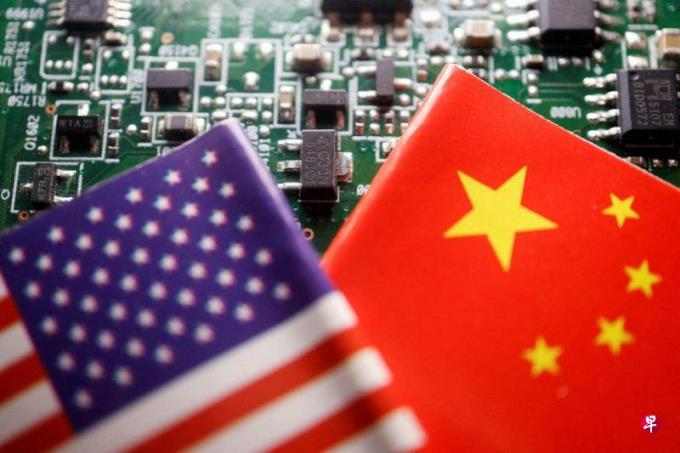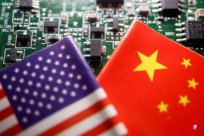
A wise man said that there are no forever friends between the country, no eternal enemies, only eternal interests.This wisdom helps to explain the four historical stages of relations between the United States and China.
From 1949 to 1972, the two countries were enemies, without building diplomatic relations, and met with war soldiers on the Korean Peninsula.This stage was abruptly stopped in 1972, and then the then US President Nixon visited China, which was shocked.
From 1972 to 1989, China and the United States were actually allies.Unity of the two countries is the common enemy, the Soviet Union.This stage ended with the end of the Cold War and the disappearance of common enemies.
The third stage began in 1989 and ended in 2016.At this stage, the two countries are no longer allies, but friends.The US policy for China is a combination of cooperation and competition.Although the former President Obama has implemented the "return to Asia" policy, it has not regarded China as a threat.He did this because he regarded China as the main competitor to the United States.
The fourth stage is the current stage, began in the Trump administration in 2017.The conclusion of the United States is that the policy of cooperation and competition has failed.Politically, China has not become more free.Economically, China has become a strong competitor.The United States has begun to regard China's rise as a threat to its global leadership and feel uneasy about the Chinese economy.Trump and Biden's government's self -evident agenda is to prevent China from surpassing the United States in economy, technology and military.
Former US President Trump launched two "war" to China: trade war and scientific and technological warfare.He imposed tariffs on a series of products exported to China to the United States, but in fact, this harm to American consumers is more harmful to Chinese exporters.At the end of Trump's presidential term, people generally believe that the trade war launched by the United States failed.However, Biden retained tariffs for political reasons.If he cancels tariffs, Republicans will blame him for being too weak to China.
In 2015, China announced a new strategic planning and industrial policy named Made in China 2025.It aims to ensure that China has a global power of 10 high -tech industries such as aerospace, biotechnology, information technology, intelligent manufacturing, marine engineering, advanced tracks, electric vehicles, and robots.The United States regards this as a threat to its scientific and technological dominance, and is determined to prevent China from challenging its leading position in high -tech fields.
The Science and Technology War in the United States
The U.S. scientific and technological war against China began during the Trump administration.In 2018, the United States banned all American companies from doing business with Chinese companies ZTE (ZTE), on the grounds that ZTE violates US sanctions on North Korea and Iran.If it wasn't for the Chinese President Xi Jinping called on Trump to terminate the ban, ZTE will have closed down.Trump agreed to do so, while ZTE agreed to pay a fine of $ 1.4 billion (about S $ 1.9 billion) for violating the sanctions.
In 2019, the United States banned another Chinese company Huawei from participating in its network construction.The United States also banned US companies from selling parts to Huawei, which made Huawei's endangered bankruptcy.Huawei accelerated its self -sufficient policy and greatly increased investment in research and development.Although it was resisted by Western countries, it was very popular in China and the world.
In October 2022, the United States implemented export controls on three key areas of artificial intelligence computer chips, electronic design automation tools, and lithography equipment, and has persuaded Japan and the Netherlands to support the ban.The purpose of the United States is to prevent China from obtaining the ability to manufacture advanced computer chips.This is the so -called chip war.
The policy and actions of Bayeng's government, of course, anger China and cause concerns about many countries.They don't want to see the United States and China in the field of technology.In order to soothe friends and allies, the United States describes policies as "small courtyards".In other words, the United States has implemented a "precise blow" to China.However, the world is worried and worried that over time, the yard will become larger and higher and the walls will become higher and higher.
China's response
China responds from several aspects.First of all, China tries to occupy a moral high by accusing the United States of illegal behavior.It complained to the World Trade Organization's export control of the United States on computer chips and has violated the WTO law.The reason for the US defense is that this involves national security.
Secondly, China has banned export technology to manufacture rare earth magnets.It dominates in the field of rare earth production and is an advantage over the United States.
Third, China is investing in research and development to deal with the challenges of the United States and achieve remarkable results.According to a study from the Australian Institute of Strategic Policy, China is in a leading position in 37 areas, including 44 high -tech fields including high ultrasound and underwater drones.The United States is still leading in the field of artificial intelligence, but China follows closely.Another area of the United States is an advanced computer chip.However, the gap between the two countries is shrinking.It is worth noting that in 2022, the number of patents in China exceeded the United States.
We are witnessing the hegemony between the current superpowers of the United States and the rising challenger of China.Competition involves various fields, including trade, investment, military, ideology, soft power, diplomacy and technology.We live in an era of scientific and technological revolution. Therefore, this competition in high -tech leadership will have decisive consequences.Whoever won this science and technology competition may become the number one superpower in the 21st century.
The author is the Singapore Tour Ambassador
Golden Shun Translation




